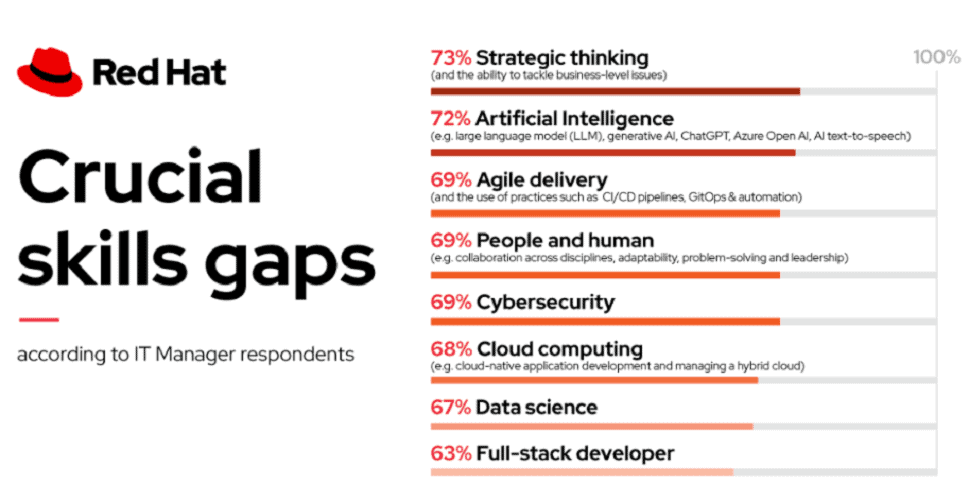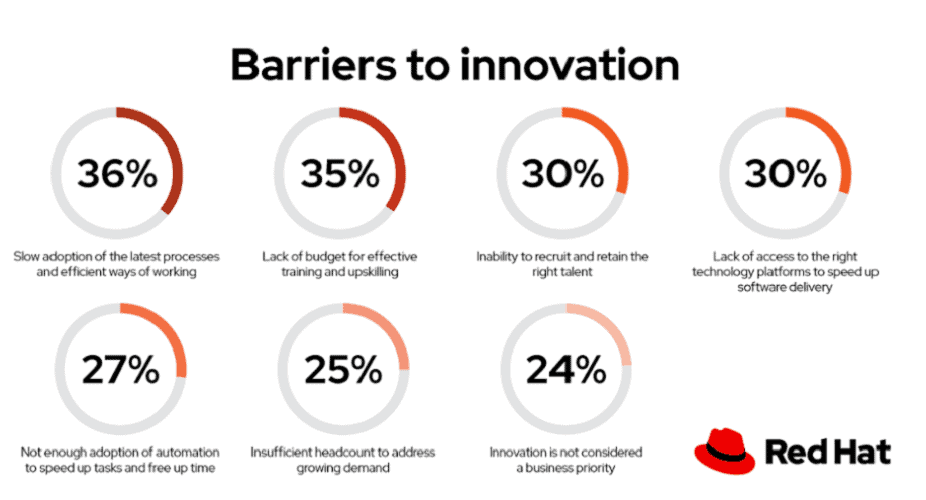The lack of sufficient knowledge about AI among employees is a major future challenge for businesses. These are the findings from a recent Red Hat survey in the United Kingdom.
Red Hat’s survey found that nearly three-quarters of UK IT managers surveyed see a lack of good AI skills among employees as a major challenge. This is coupled with a lack of strategic knowledge and business skills within companies.
Other key business challenges cited by respondents include lack of knowledge in areas such as so-called agile delivery, CI/CD pipelines, GitOps and automation, and cybersecurity.
Reasons why (IT) employees lack knowledge include a high workload, insufficient budget for training, working in segregated departments, not being able to keep up with technological developments and a lack of interest.

Barriers to innovation
In their study, the Red Hat specialists also looked at what factors inhibit companies in their innovation. The main cause is that companies are still slow to embrace new processes and more efficient ways of working.
They are also still not allocating enough budget to train employee and let them learn new skills, such as in the field of AI.
A lack of access to new IT platforms to accelerate software delivery comes in third. Similarly, there is a shortage of technically skilled talent and it is difficult to retain this talent as well. Furthermore, not enough automation is being deployed.
Scaling up AI skills
According to the researchers, it is very important for companies to ensure that the IT and AI skills of their employees are quickly upgraded. In particular, companies need greater expertise in data bias, the ethics surrounding AI use and being able to explain AI models. To do this, they must have the right collaboration platform for all employees.
Embracing open source
Red Hat further advocates increased use of open-source and the participation of companies in the open-source community. According to the company, companies that participate in these types of communities receive many benefits.
These include sharing best practices, and working together to create ethical AI standards. This will ultimately give them a competitive advantage in the evolving AI landscape, according to the study.
Also read: Businesses are adopting zero-trust en masse


